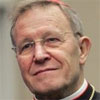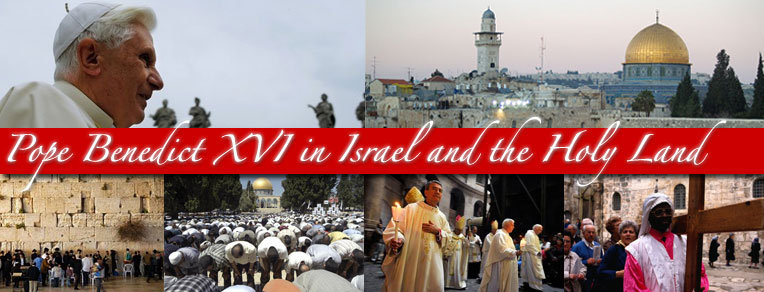 Speaking to the German Catholic Press Agency last week, Cardinal Walter Kasper, president of the Pontifical Council for Promoting Christian Unity and head of the Vatican commission for relations with Jews, said the Holy Land visit would be "quite different" from his other visits abroad and "one of the most difficult". The Tablet reports:
Speaking to the German Catholic Press Agency last week, Cardinal Walter Kasper, president of the Pontifical Council for Promoting Christian Unity and head of the Vatican commission for relations with Jews, said the Holy Land visit would be "quite different" from his other visits abroad and "one of the most difficult". The Tablet reports:"Both the political and the church situation in the Middle East are anything but easy. A balance will have to found between the Pope's encounter with Israel and the Jews on the one hand, and with the Christians, who for the most part live in the Palestinian territories, on the other. A difficult task - but all the more necessary for that," he said.Thorough preparation was a must, he insisted, and the groundwork was in full process. "We affirm the state of Israel and maintain diplomatic relations with it, and our relationship with the Jews has improved enormously. On the other hand we must do justice to the Palestinian Christians, who do not have an easy life. The Holy See is in favour of a two-state solution but that does not seem so important to the Israeli Government at the moment. The diplomatic high-wire act will therefore be not to accept any false compromises," Cardinal Kasper emphasised.
According to Kasper, the Pope's visit had several aims -- one was to stabilize relations with the Jewish and Muslim communities -- the former after the controversy involving the Levebrists and the changes to the Good Friday Prayer, the latter still smarting from his remark about Mohammed during his Regensburg lecture (yes, even two years later). Ecumenical relations were also a factor, "as the Pope would encounter practically all the separated Christian denominations in Jerusalem."
Click here to read the rest of Cardinal Kasper's interview in The Tablet). (Thanks to Benodette at our Pope Benedict Forum for the tip).










No comments:
Post a Comment